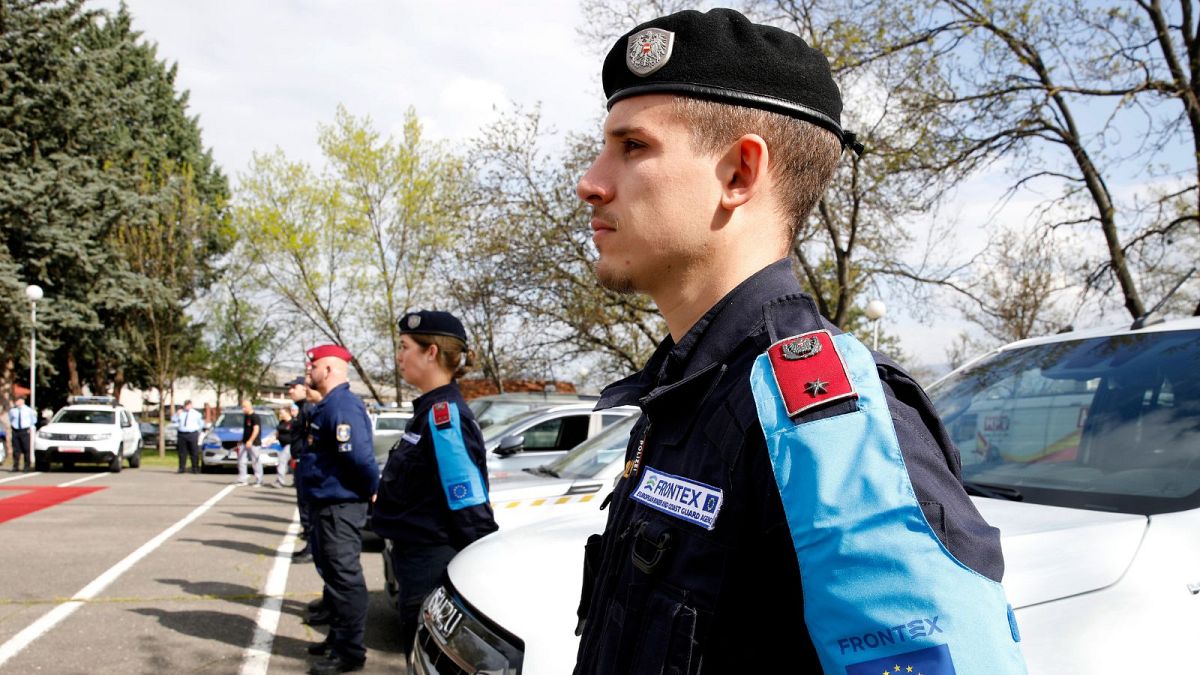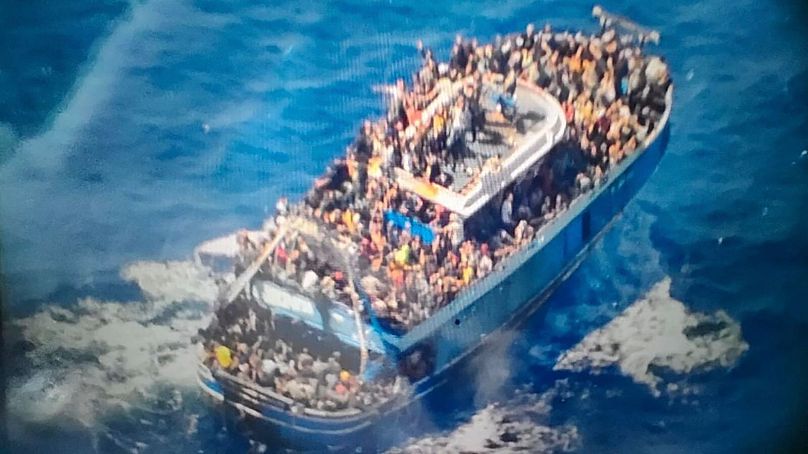The agency's fundamental rights officer has recommended Frontex temporarily suspend its activity in Greece over the latest migrant boat tragedy. But the move might not be the best option to keep the Greek authorities in check.
Frontex, the European Union’s powerful border agency, is considering temporarily suspending its activity in Greece over the capsizing of an overcrowded vessel off the coast of the country earlier this month, one of the biggest tragedies in the Mediterranean in years.
The idea was suggested by Frontex’s fundamental rights officer, Jonas Grimheden, during the agency’s management board meeting between 20 and 21 June, as first reported by the French newspaper Le Monde.
The recommendation by the fundamental rights officer follows the capsizing of an overcrowded fishing boat on 14 June, which is likely to have caused the death of hundreds of people who were aboard. Officials have retrieved the bodies of 82 people, while hundreds are still considered missing. Of the estimated 750 people aboard the vessel, only 104 were rescued and survived the tragedy.
The Greek authorities were highly criticised over the tragedy, with many saying that they could -- and should -- have acted faster to help the migrants aboard the clearly dangerous vessel. Testimonies from survivors said the Greek Coast Guard had tied up the vessel and tried to pull it before it capsized -- a move that’s highly unusual in these cases and which witnesses said caused the boat to sway.
Greek authorities denied this happened.
But Frontex has been among the most sceptical critics of the Greek authorities’ role in the tragedy. The agency said it has initiated a “serious incident report” looking into recording potential human right violations in Greece’s response to the emergency.
What would happen if Frontex decides to leave?
There are currently 518 standing corps officers and Frontex staff working in Greece’s mainland and islands, according to the agency, which also deploys 11 boats and 30 patrol cars.
Christopher Szabla, Assistant Professor in International Law at Durham Law School in the UK, told Euronews that he can imagine two consequences of Frontex potentially suspending its activities in Greece: one reputational and the other practical.
On the reputation side, “Frontex has not exactly often been known for a rights-first approach, but embodies an attempt to balance between migration control and rights that, many observers have argued, has placed more emphasis on control,” Szabla said.
“If even Frontex finds the Greek government’s actions intolerable from the perspective of migrant rights, it could send a signal that Greece is out of step with even baseline EU norms on migration.”
On the practical side, Szabla said, the Greek government could suffer direct, material consequences from the border agency deciding to leave its territory.
“Frontex provides considerable assistance to the Greek government in monitoring and controlling migration, and pulling those resources might place material pressure on Athens,” he said.
‘A paradox’ in the making
Szabla thinks that there is “a paradox” in Frontex pulling out of Greece, as doing so will prevent it from continuing to independently monitor the activities of Greek border forces or put pressure on the Greek government to act more humanely and following international law.
“It would no longer have the resources on the ground to do the former and would have removed leverage to achieve the latter,” Szabla said, adding that another risk might be “that Greece argues that it needs to take more exceptional measures without Frontex assistance.”
In this case, Greece could say it is overwhelmed without Frontex’s assistance and can no longer as effectively patrol the EU’s outer border -- a move that would undermine Frontex’s missions on both border control and rights, according to Szabla.
In short, it’s a situation where every option has a potential major downside, but where Frontex likely feels pressured to act to take a stance.
Answering a request for comment from Euronews about its potential decision, Frontex said that it could not discuss any comments made during the Management Board meetings, as they are not public.

